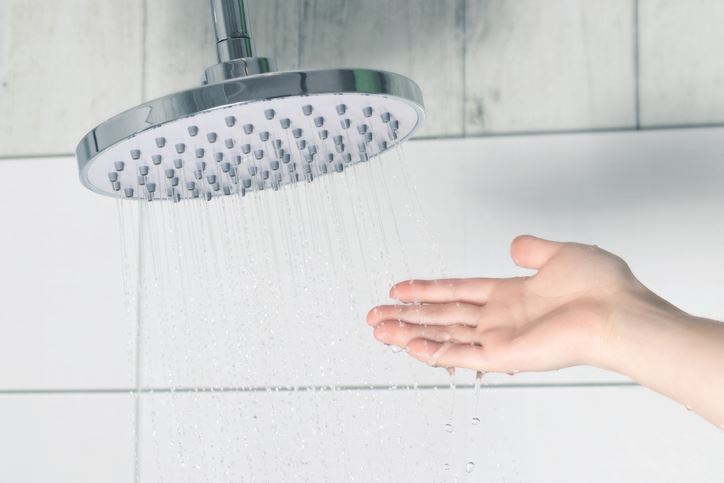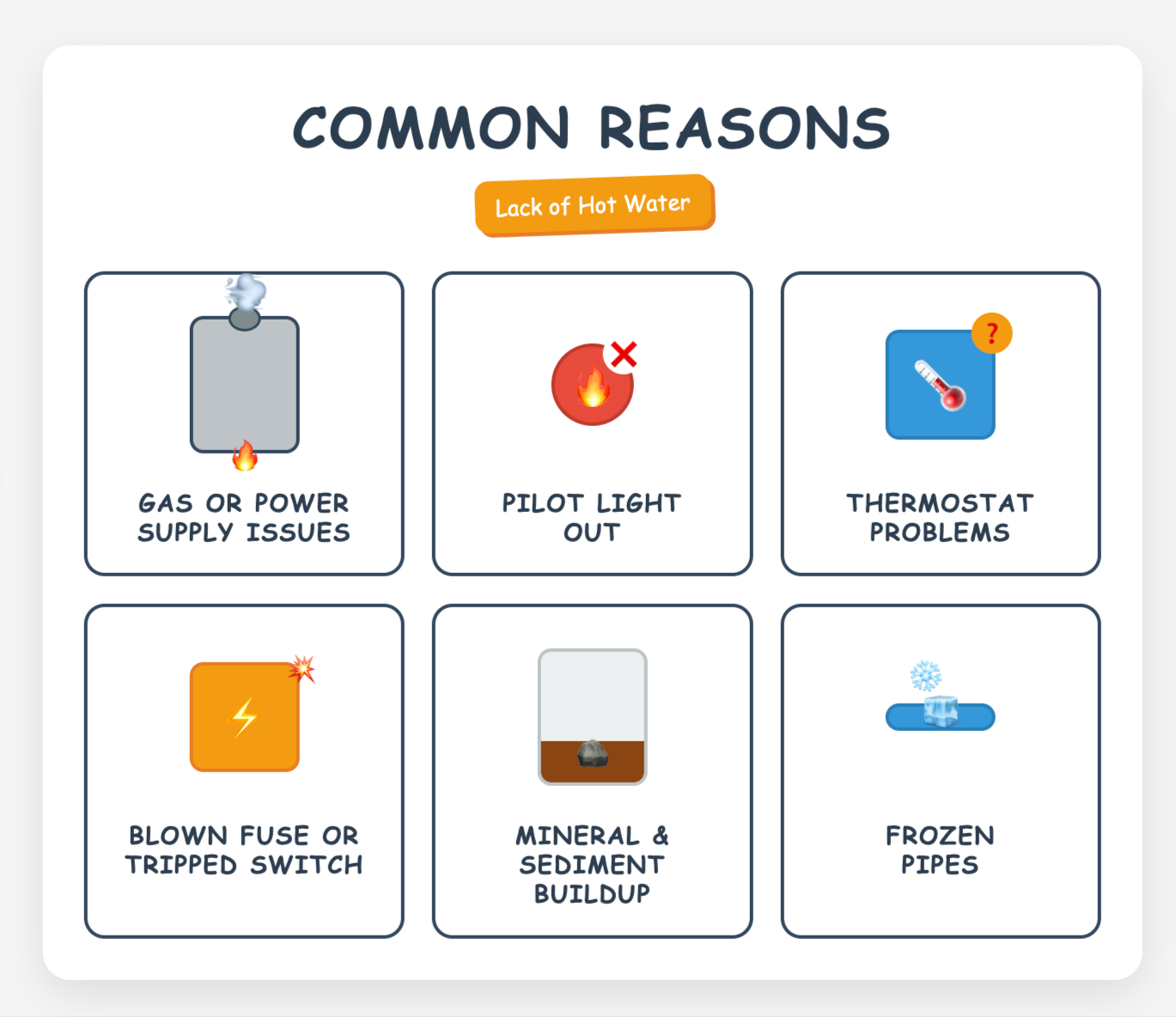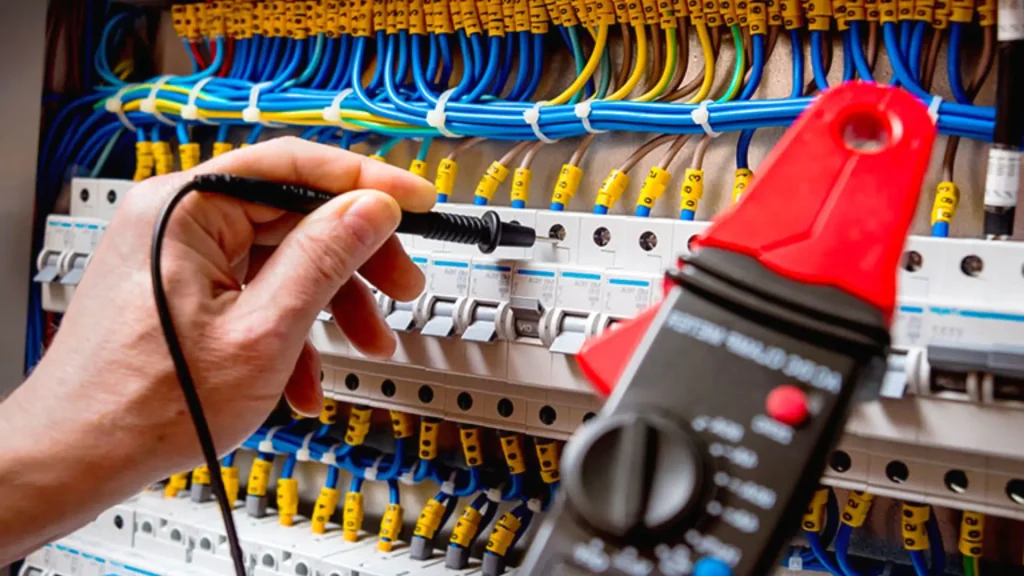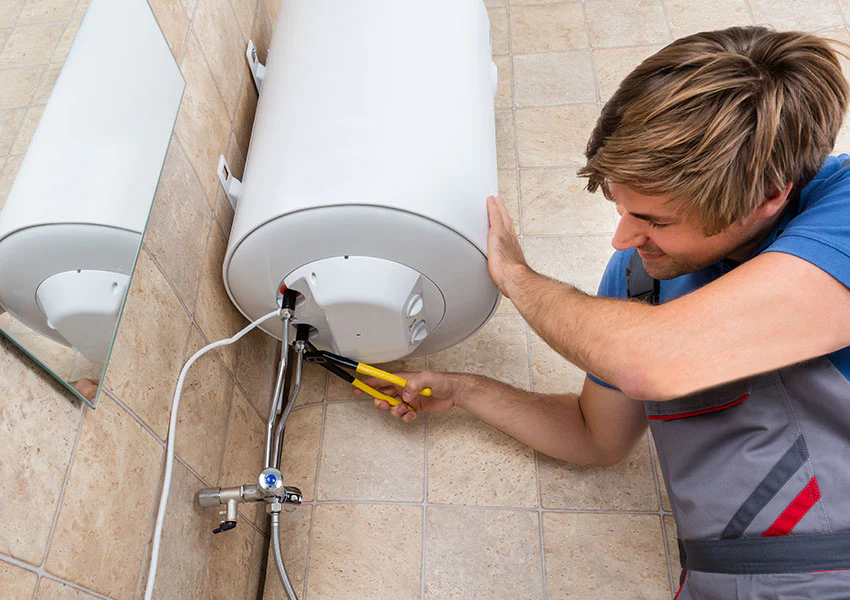
The need for hot water in Australian homes has changed a lot over the last decade. Showers are longer. Appliances […]

If you have witnessed a cold winter morning in Australia, you’d know that the only thing as good as your warm, cosy bed is stepping into the shower.
But imagine being greeted by a blast of freezing water instead, followed by a sudden realisation that you don’t have hot water, again!
Unfortunately, it’s not merely an inconvenience but also a disruption to your entire routine.
Whether you’re getting ready for work in the morning or hoping to unwind with a hot bath after a long day, not having hot water can be a hassle. It throws off your comfort, peace of mind, and sometimes your overall schedule.
However, before you pick up the phone to call a plumber, it’s important to know that in many cases, the issue might be something simple that you can fix yourself.
In this article, we’ll walk you through the most common reasons your hot water might not be working, how to troubleshoot and resolve these issues, and when it’s time to call in a professional.
Understand your hot water system first
Before beginning your efforts to restore the hot water, you must identify the type of hot water system installed in your house. The most prevalent kinds in Australia are as follows:
Electric storage systems in which water is heated and stored in large tanks
Gas (storage or instantaneous) water heater, which is a system using LPG or natural gas.
Solar hot water systems often have a backup gas or electric booster.
Heat pump water heating system, which includes energy-saving devices that draw heat from the atmosphere.
Understanding your system is essential because every type has a unique set of possible problems and solutions. Checking the pilot light, for instance, makes sense if you have a gas system, but not for an electric one.

Sometimes, the issue is as straightforward as a gas valve that has been turned off or a power outage.
Look for any tripped circuit breakers on your switchboard if you have an electric water heating system.
The switch may only need to be reset.
If you have a gas storage or instantaneous water heater, however, make sure you have a steady gas supply and that the gas meter is turned on.
Those using bottled LPG must ensure that the cylinder is not empty and the valve is not closed.
For households depending on a gas system, another common reason for water going cold is the pilot light being blown out.
So, if you are hit with cold water, check to see if the pilot light is still glowing.
Usually, the system itself has instructions on how to relight it.
However, you must refrain from trying to relight it by yourself if you smell gas or are unsure; instead, call a qualified gas fitter right away.
A thermostat regulates the water temperature in the majority of water heating systems. Your water may not be heating up adequately if it is broken or has been inadvertently turned off.
While some thermostats can be adjusted, some need to be inspected by a professional.
Users of electric water heating systems must be aware that many safety features are frequently integrated into such electrical systems.
Therefore, you may check your fuse box or safety switchboard if your system has abruptly ceased working.
While a reset might fix the problem, frequent tripping indicates a more serious issue, like a heating element malfunction.
The mineral content of the water supply usually varies by the region of Australia that you live in.
In regions with hard water, such as sections of Western Australia or South Australia, minerals may build up inside the pipes or tank. This eventually lowers the system’s efficiency and may cause the hot water to stop flowing.
Although it is uncommon, water pipelines in Tasmania, the ACT, or highland regions may freeze overnight. If thawed incorrectly, frozen pipes can fracture and obstruct water flow.
Avoid using open flame or boiling water. Alternatively, if the pipe is within reach, use a hair dryer set on low or gently apply a warm cloth.
Is the Hot Water Out Everywhere, or Just One Tap?
First thing that you must do is figure out the scale of the problem; is it just one tap that’s bothersome, or are all the taps of the house running cold water?
If it’s just one shower or sink, your hot water system might not be the issue at all.
It is likely just a local concern, such as a damaged pipe beneath the sink, a blocked aerator, or a malfunctioning mixer tap.
However, if the showers and taps all around the house are affected, there’s certainly a need to investigate further.

If you have an electric storage water heating system, check to see if the breaker has tripped on your switchboard.
If yes, turn the hot water switch back on and let the system warm up for about an hour.
When using gas heaters, make sure your other gas appliances, such as the heater or hob, are operational. If not, it’s a good idea to get in touch with your energy provider, as there might be a problem with the gas supply.
If you use a solar hot water system, which is common in Australia’s sunny regions, think about how long the sun has been out recently.
Overcast winter days might make heating less effective. The majority of the solar systems have a gas or electric booster. During the colder months, make sure the booster is turned on.
Check for a humming noise.
A broken heating element or thermostat could be the cause of the silence for an electric storage tank system. Also, look for water collecting around the base, which is a blatant indication that something is amiss.
Examine the pilot light because your water won’t heat if it’s out. Relighting instructions are often printed on the unit of most systems.
There can be an issue with the gas valve or thermocouple if it won’t stay lit.
Sometimes, error codes are frequently displayed by tankless or on-demand devices when something is amiss. Look up the meaning of the code in your user manual or on the brand’s website.
Sometimes the water may be “hot,” but not hot enough.
Verify that the thermostat is set between 60°C and 65°C, which is the standard setting for most systems. Anything less might feel lukewarm.
Additionally, anti-scald devices are installed in certain systems, especially in houses with the elderly or children.
These gadgets might keep the water from being as hot as you want.

If there is no hot water in your house, a thorough inspection of every system component might save you money, time, and a very cold shower.
Yet, there are times when hiring a qualified plumber is not just wise, but necessary. Here’s when you should seek professional help:
In Australia, it is always recommended to choose a licensed gas fitter or plumber.
State portals such as NSW Fair Trading, VBA (Vic), or QBCC (QLD) allow you to verify their credentials.
Remember that addressing an issue properly is always better than running the risk of making it worse, and safety is just as important as compliance.
| Heater Type | Lifespan | Pros | Cons |
|---|---|---|---|
| Gas tanked | 10–15 yrs | Fast heating, works during power outages | Ongoing gas costs require venting |
| Electric tanked | 10–20 yrs | Easy install, safer indoors | Slower, may need larger capacity, more expensive to run |
| Electric tankless | 20+ yrs | Infinite hot water, energy efficient | High installation cost, may need electrical upgrades |
| Gas tankless | 20+ yrs | Efficient, compact | Variable flow, installation complexity |
Commonly caused by pilot outage, power trip, thermostat fault, sediment build-up, or heater age.
Turn the gas control to “Off”, wait 10 minutes, then switch to “Pilot”. Hold and ignite as instructed. Relight the fixture or contact a plumber if it is faulty.
At least once annually, to remove sediment and maintain efficiency.
Aussie call-out fees typically range from $100 to $200, with hourly labour plus parts; full system replacements start from $1,500+, depending on the type and capacity.
Saves energy over time, provides an endless supply, but incurs higher upfront costs and may require electrical or gas upgrades.
Likely a ground fault, shorted element, or wiring fault—switch off power and call a licensed electrician.
Cold ambient temps slow recovery and expose cold spots; use insulation or heater blankets.